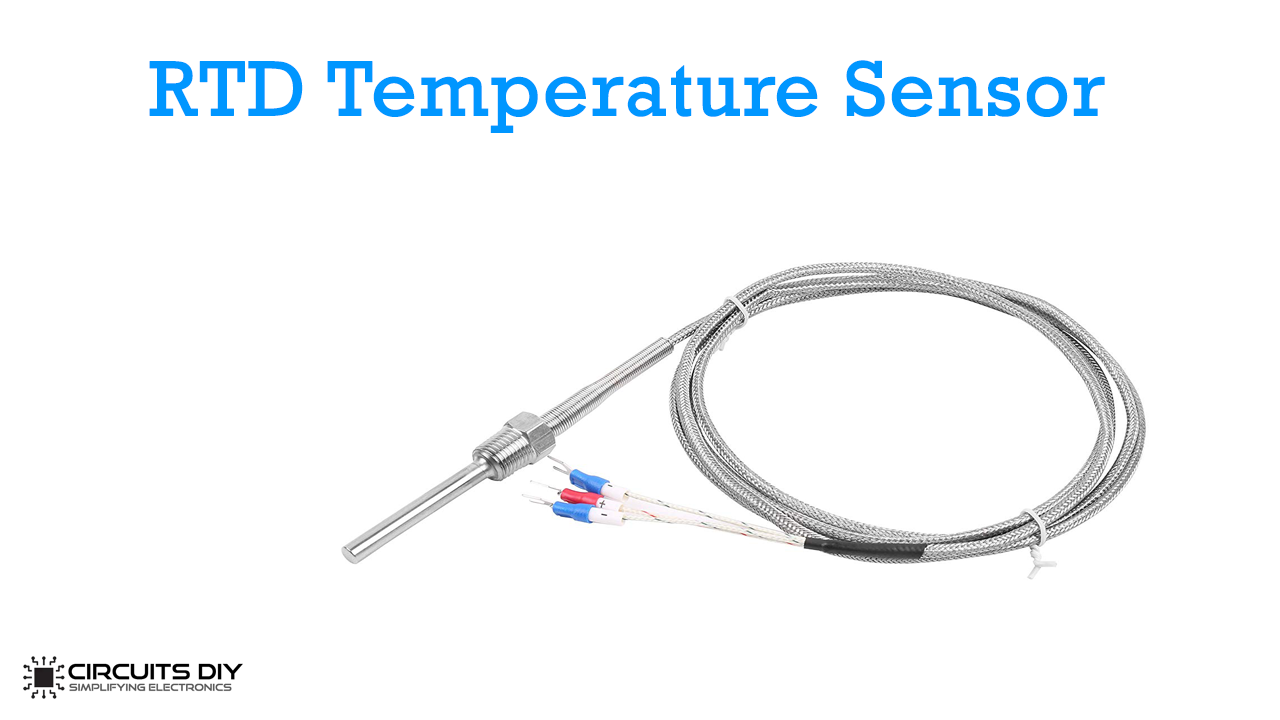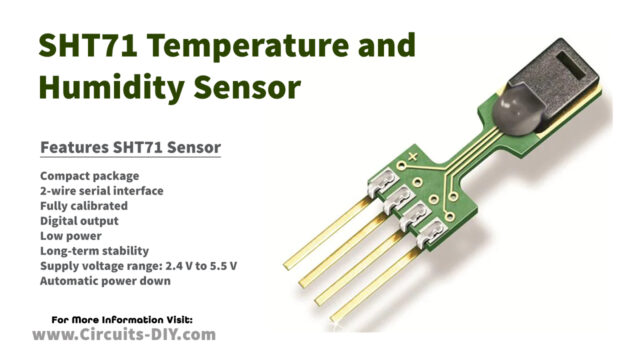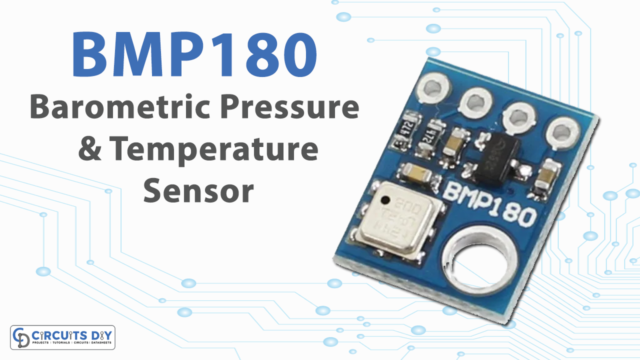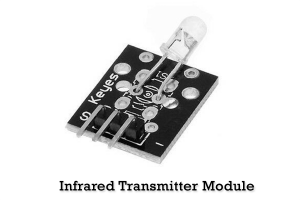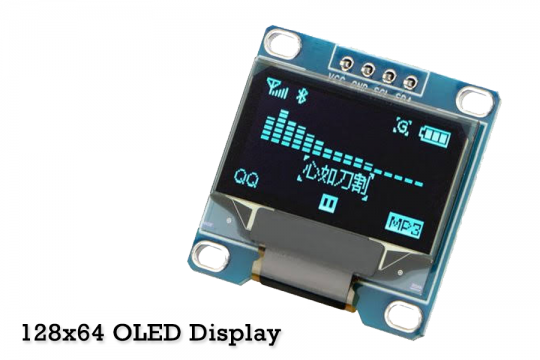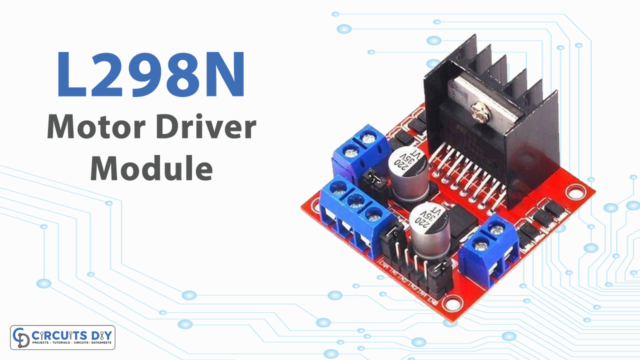In a PT100 RTD Sensor, RTD means Resistance Temperature Detectors. It is a temperature sensor that contains a resistor that changes the resistance value as its temperature changes. They have proven useful examples to measure heat or temperature in laboratory and industrial processes.
The PT100 RTD sensor is one of the most accurate temperature sensors. It provides good accuracy, excellent stability, and repeatability.
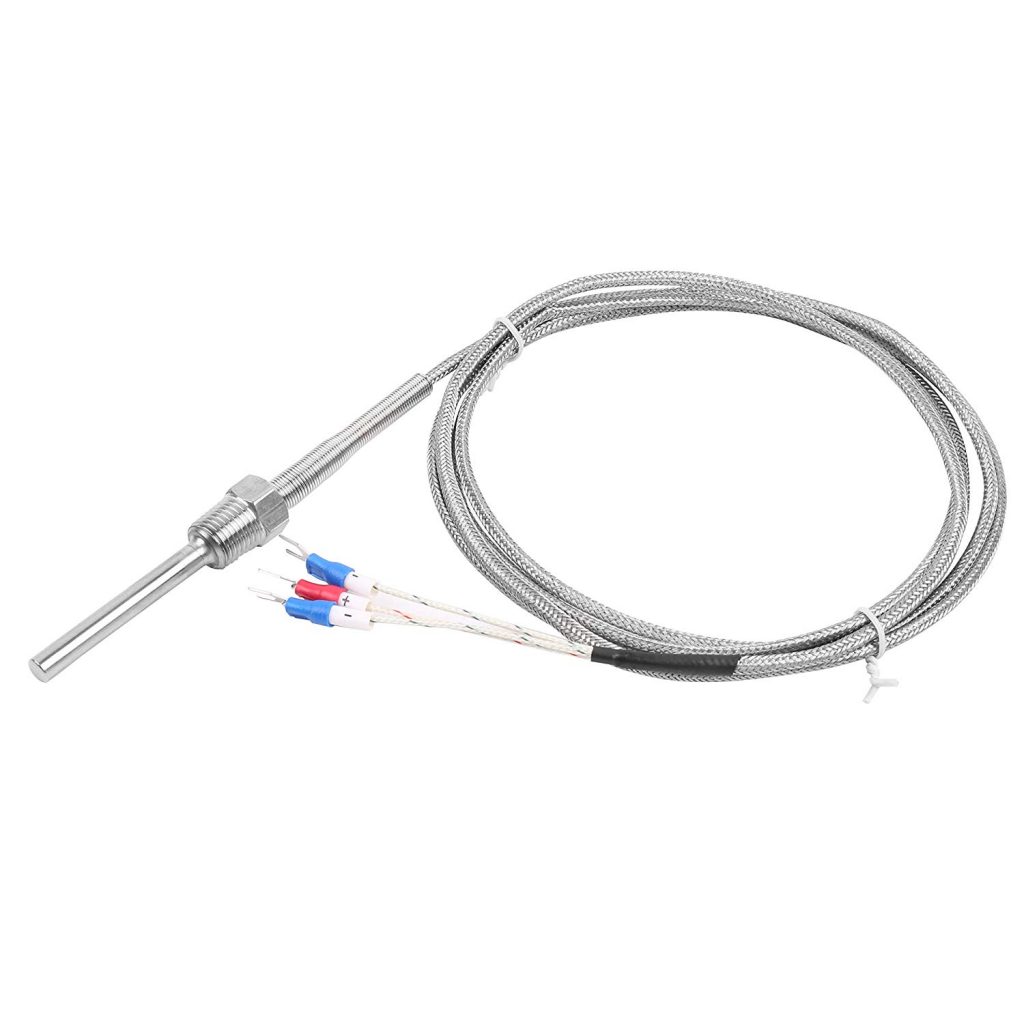
Features Of PT100 RTD Sensor
- Resistor material is Platinum with a value of 100Ω at temperature 0°C
- Platinum has a positive resistance temperature factor, i.e the resistance increases with rising temperature
- Resistance variation is a function of temperature given as 0.385Ω/°C
- It has high accuracy and stability as compared to thermocouples, silicon-based temperature sensors, or thermistors.
Working Principle
An RTD temperature sensor operates on the measurement principle that
A material’s electrical resistance changes with temperature.
The relationship between an RTD’s resistance and the surrounding temperature is well predictable, allowing for accurate and consistent temperature measurement.
By providing an RTD with a constant current and measuring the resulting voltage drop across the resistor, the RTD’s resistance can be calculated and the temperature can be determined.
Applications
- Most suitable for accurate results with reliable figures.
- This sensor measures high range temperatures
- Rugged in construction, so useful in harsh environments
- It measures duct temperatures effectively
- It can measure a wide range of temperature with decent accuracy


